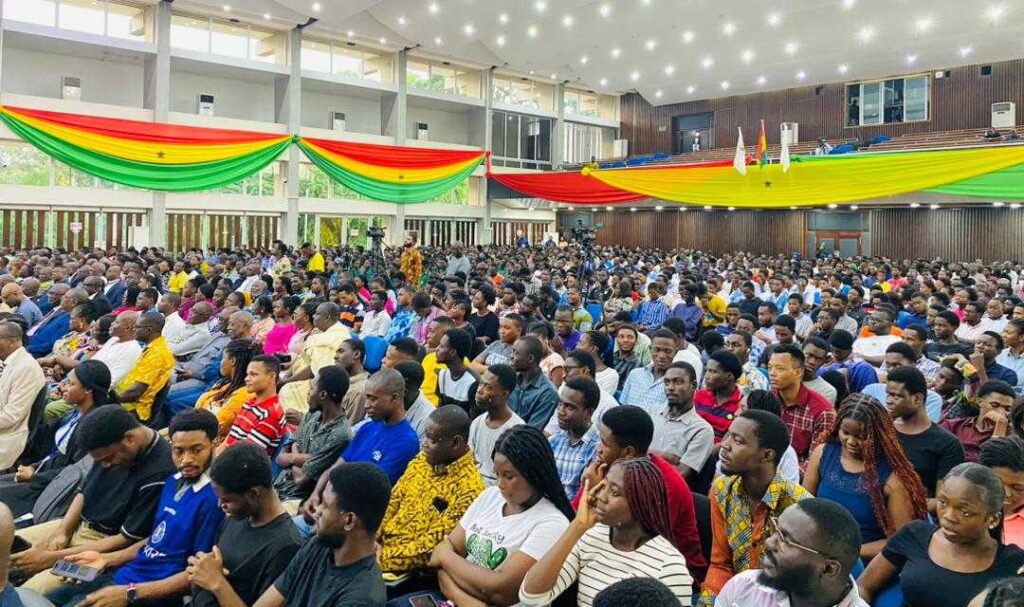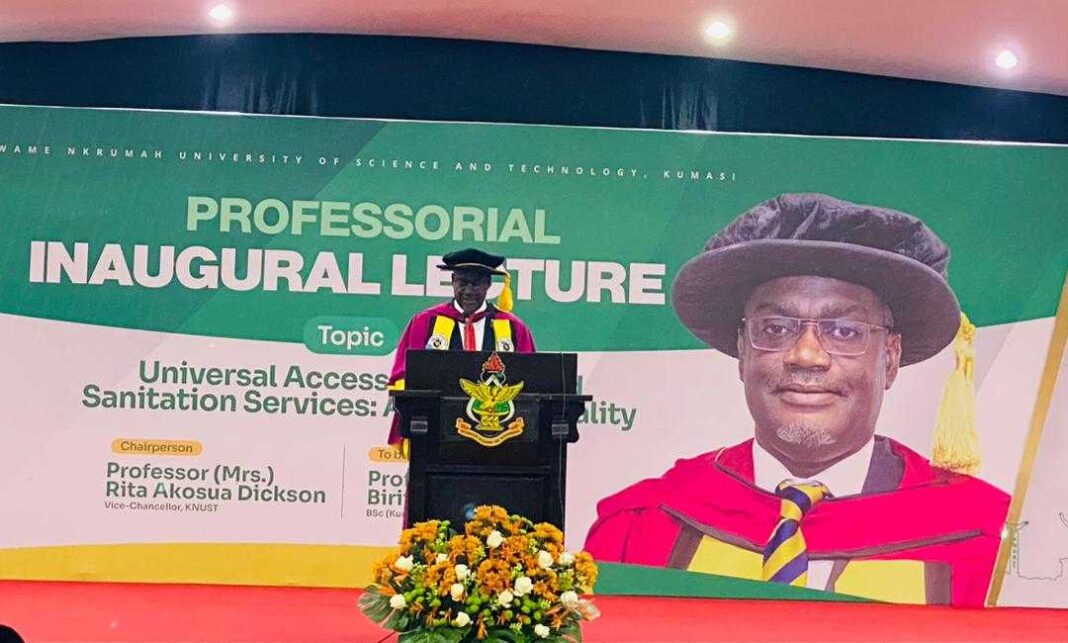KNUST’s Prof. Nyarko on Water & Sanitation Crisis: Imagine a future where every Ghanaian has access to clean water and proper sanitation. It’s a vision within our grasp, yet the clock ticks. With only six years to reach 2030, the need to scale up actions toward achieving the 6.1 and 6.2 Sustainable Development Goals has become more pressing than ever. At a recent professorial inaugural lecture, Prof. Kwabena Biritwum Nyarko underscored the critical need for immediate and substantial investment in water and sanitation.
KNUST’s Prof. Nyarko on Water & Sanitation Crisis
A report by the Ghana Statistical Service on the current state of water and sanitation in Ghana, dated 2022, reveals that some 1.4 million Ghanaians rely on surface water, while only 37 percent make use of sachet water. Whereas 56 percent are served with improved water supply, the story cannot be said to be the same for sanitation. Staggering 8 million people use public toilets, while 11 million share toilets with neighbors, with open defecation increasing from 3.4 million to 5.7 million.
According to Prof. Nyarko, high levels of inaccessibility to water and sanitation account for about 1.7 billion cases of gastrointestinal diseases yearly around the world, resulting in over 700,000 deaths, mainly among children under five. While Ghana has made progress, whereby the access rate to at least basic water services increased from 56% of the population in 1990 to 88% by 2022, and the access rate to basic sanitation services from 7% to 29%, big challenges still remain, including population increase, urbanization, climate change, and inequity in access.

To bridge the gap between Ghana’s SDGs commitments and the current reality, Prof. Nyarko called for a strong government commitment to expanding access and ensuring the sustainability of water and sanitation systems. He emphasized the need for investment in research, development, and innovation to find solutions in areas such as financing, technology options, institutional design, and marketing.
Prof. Nyarko also addressed the health risk posed by untreated grey water. He noted that 60% of the population dispose of grey water by throwing it on the ground or streets, 27% let it flow into gutters, 11% channel it into soak pits, and only 2% use proper sewage systems. This improper disposal leads to significant environmental and health risks, highlighting the urgent need for a national framework for greywater management.
Conclusion
This lecture by Prof. Nyarko is only a cardinal reminder to the fact that universal access to water and sanitation by 2030 should not be a target but rather an imperative. This is expected to deliver health benefits and economic well-being for millions of Ghanaians. There is, therefore, the need for the government, private sector, and all stakeholders to act now in investing in effective and sustainable solutions for ensuring that every Ghanaian has access to clean water and proper sanitation. It is a vision that only by pulling together will we be able to turn into reality.
YOU MAY ALSO LIKE TO READ: KNUST’s Partnership with PMI Ghana: Bridging Theory and Practice



